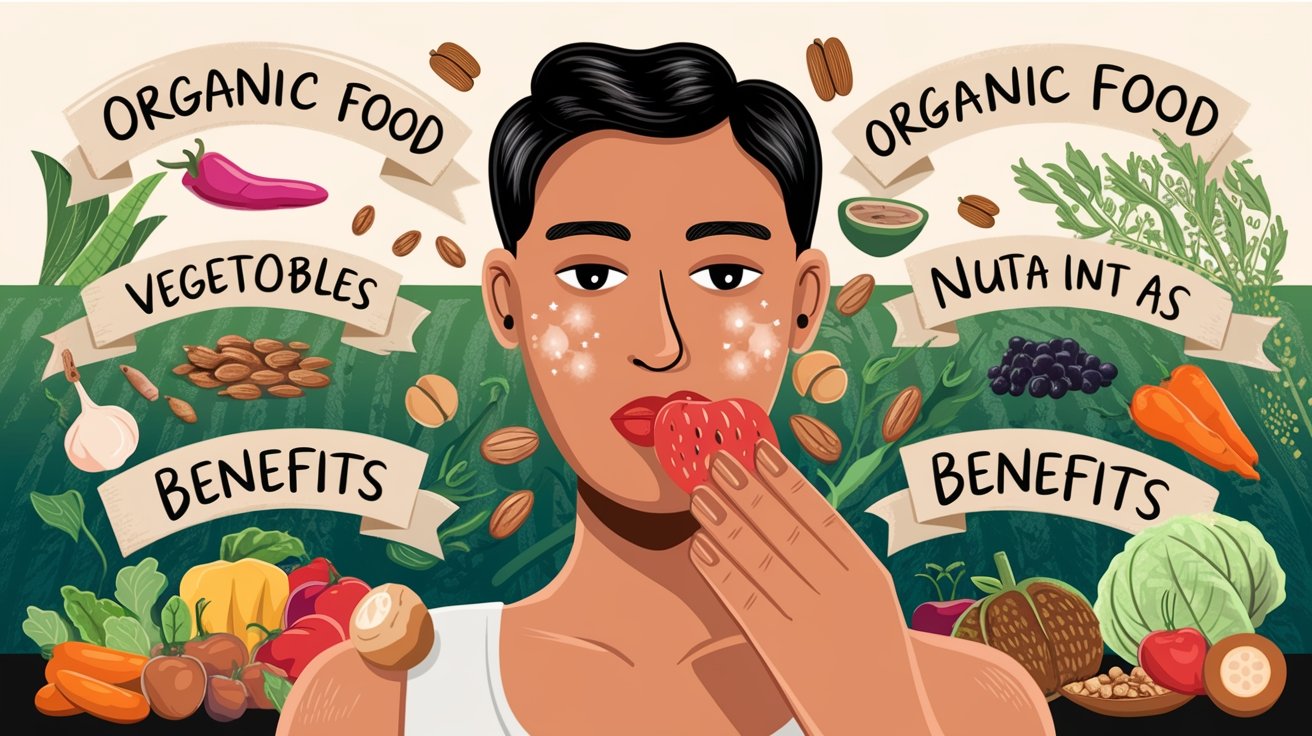Eating organic food benefits both your health and the environment, making it a smart choice for those looking to improve their well-being. As more people become conscious of the food they consume, the appeal of organic options continues to grow. But what exactly makes it so attractive? Let’s explore the key reasons why this shift to organic is more than just a trend.

Eating Organic Food Benefits: Healthier for Your Body
One of the most well-known benefit is the absence of harmful chemicals and pesticides. Organic foods are grown without synthetic pesticides, herbicides, or genetically modified organisms (GMOs), which means you’re consuming cleaner, more natural ingredients. This results in fewer toxins entering your body, leading to a healthier immune system and potentially reducing the risk of chronic diseases. Additionally, organic produce is often richer in essential nutrients like vitamins, minerals, and antioxidants, providing your body with what it truly needs.
Organic Food: Supports the Environment

Another significant benefit of eating organic food is the positive impact on the environment. Organic farming practices focus on sustainability by avoiding harmful chemicals that can pollute soil, water, and air. These practices also promote healthier ecosystems by encouraging biodiversity and reducing soil erosion. By choosing organic, you’re not only making a healthier choice for yourself but also supporting farming methods that are kinder to the planet.
Organic Food: Better Taste and Quality
It’s often said that organic food benefits not only your health but also your taste buds. Many people report that organic fruits and vegetables have a fresher, more vibrant taste compared to their non-organic counterparts. This improved flavor can be attributed to organic farming methods that emphasize soil health and plant nutrition, resulting in more nutrient-dense, flavorful crops. When it comes to organic meat and dairy, animals are raised without antibiotics or growth hormones, ensuring a more natural and wholesome product.
Eating Organic Food: Reduced Risk of Contamination

Eating organic food benefits also include a lower risk of contamination from harmful bacteria or chemicals. Because organic farming avoids the use of synthetic chemicals, there’s less risk of consuming food that’s been exposed to harmful substances. This is particularly important when it comes to meat and dairy, where conventional farming methods often rely on antibiotics and growth hormones. Organic options ensure that you’re consuming cleaner, safer food.
Eating Organic: Long-Term Cost Savings
While organic food can sometimes be more expensive at the grocery store, it benefits your long-term health and wallet in surprising ways. By consuming cleaner, more nutritious food, you may reduce healthcare costs associated with chronic diseases or illnesses linked to poor diet choices. Investing in organic food today can lead to long-term savings by promoting better overall health and reducing the need for medical treatments down the road.
Eating Organic Food: Supporting Ethical Farming

Choosing organic also means supporting ethical and sustainable farming practices. it benefits not only your body but also the farmers who commit to these responsible practices. Organic farming often requires more care, attention, and labor, but it results in better working conditions for farmers and a more balanced ecosystem. By purchasing organic products, you’re voting with your dollars for a more humane and environmentally friendly food system.
Conclusion: Why Eating Organic Food Matter

In conclusion, eating organic food benefits extend far beyond just personal health. From the nutritional advantages to the environmental impact and the support of ethical farming, there are countless reasons to make the switch to organic. As awareness around food quality grows, so do the choices we have to live healthier, more sustainable lives. Embracing organic food means making a conscious decision to prioritize not only your well-being but also the future of the planet.

